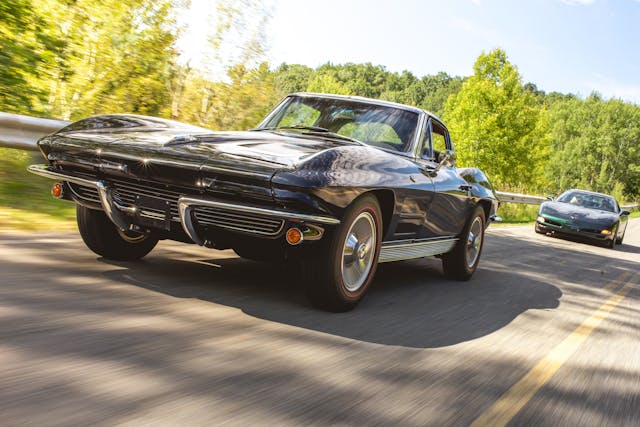Carini: Due diligence before buying leaves room for fun down the road
I made my first car-buying mistake when I was 17. I owned a gorgeous British Racing Green MGB at the time and decided to trade it for a C2 Corvette. Trading up from an MGB to a Corvette sure sounds like a no-brainer, right? Not in this case.
I was so excited to be a teenager with a Corvette that I didn’t take into account the cost of insurance for a teenager with a Corvette. My dad even tried to warn me, but I didn’t bother to check with agents and just blundered on. Soon I had a beautiful, powerful sports car that I couldn’t license because I couldn’t insure it.
I’ve learned a lot about buying and selling since then, and our recent guide covering to how to best navigate today’s landscape is an excellent resource to have on hand. Here are my own tips.
Once you know the make and model of the car you’re interested in, do your homework. Try not to over-research it, which will end up driving you crazy. But do all the fact-finding before you actively start looking so you don’t risk losing the car you want due to a lack of preparation.
I like to have a general background on a given car so I know what to look out for when I see it. It’s also a good idea to get an insurance quote before you buy the car so there are no surprises.
It’s easy to research what similar cars are selling for with several price guides, including Hagerty Valuation Tools, with values established by balancing private sales, dealer sales, and auction results. Although prices are influenced by the individual car and the conditions surrounding the sale, such prices can provide a clue as to what a similar car might sell for. No matter what resource you’re using, though, remember that it is only a guide.

For every car I want to buy, I check serial numbers and make sure the numbers on the car match those on the title and registration. When I can’t view a car in person, I request photos of the serial number or VIN (1981 and later), then look for a resource that has a decoder. Properly interpreted, some serial numbers reveal original colors, the plant in which the car was built, and the original type of engine it came with. For some limited-production cars like Ferraris, Cobras, and prewar Alfa Romeos, chassis-by-chassis records are available. Some carmakers even offer a certification program that verifies originality. There are also marque experts who can help. If you’re looking at a car built after 1981, order a CarFax report, which will reveal service history, past damage, and number of owners. Keep in mind that the report is only as good as the information reported.
If I can’t look at a car myself, or if I don’t know a model’s ins and outs, I’ll hire a marque specialist, experienced restorer, or even a certified appraiser for a pre-purchase inspection. For cars built in the past couple decades, engaging an authorized dealer is a good alternative.
Now, none of this information matters all that much if you can’t fit into a car. I once had a client who had wanted a Ferrari 512 Boxer for years and came to see one in my showroom. One look at him, however, and I knew he just wouldn’t fit. If you can’t travel to see the very car you’re considering, contact a club or a specialist near you to see about trying one of their cars on for size.
Everyone is going to want to tell you what to buy, but the most important aspect of buying a classic car is to get one you really like, without regard for investment potential. Old cars are supposed to be fun, after all. Due diligence and a little bit of homework mean there will be fewer headaches down the road. If that preparation includes a few hours spent on the internet, paying for an inspection, or simply checking that the numbers are correct and actually pertain to the car you’re trying to buy, it all adds to your own peace of mind in the long run.
Over the years, the extra effort and minimal cash outlay have saved me thousands. So has the Corvette experience, and I’m reminded of it every time I buy a car.


